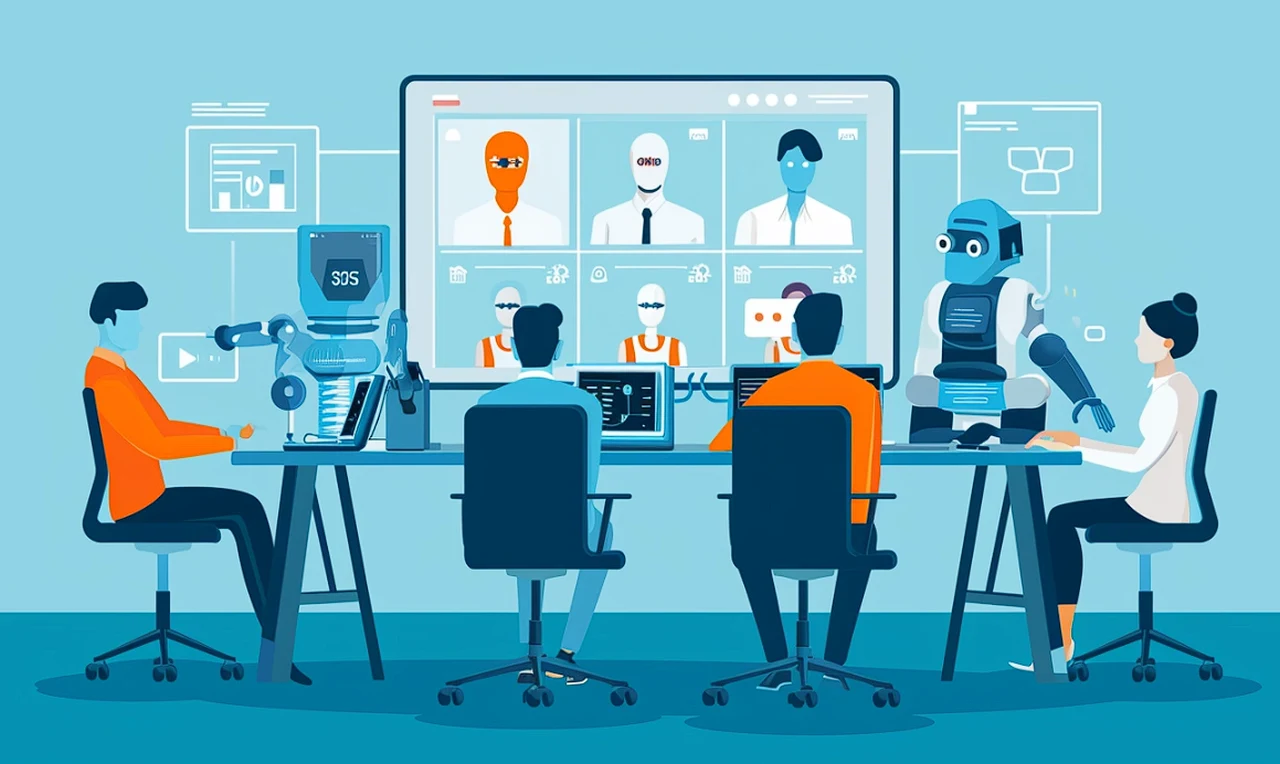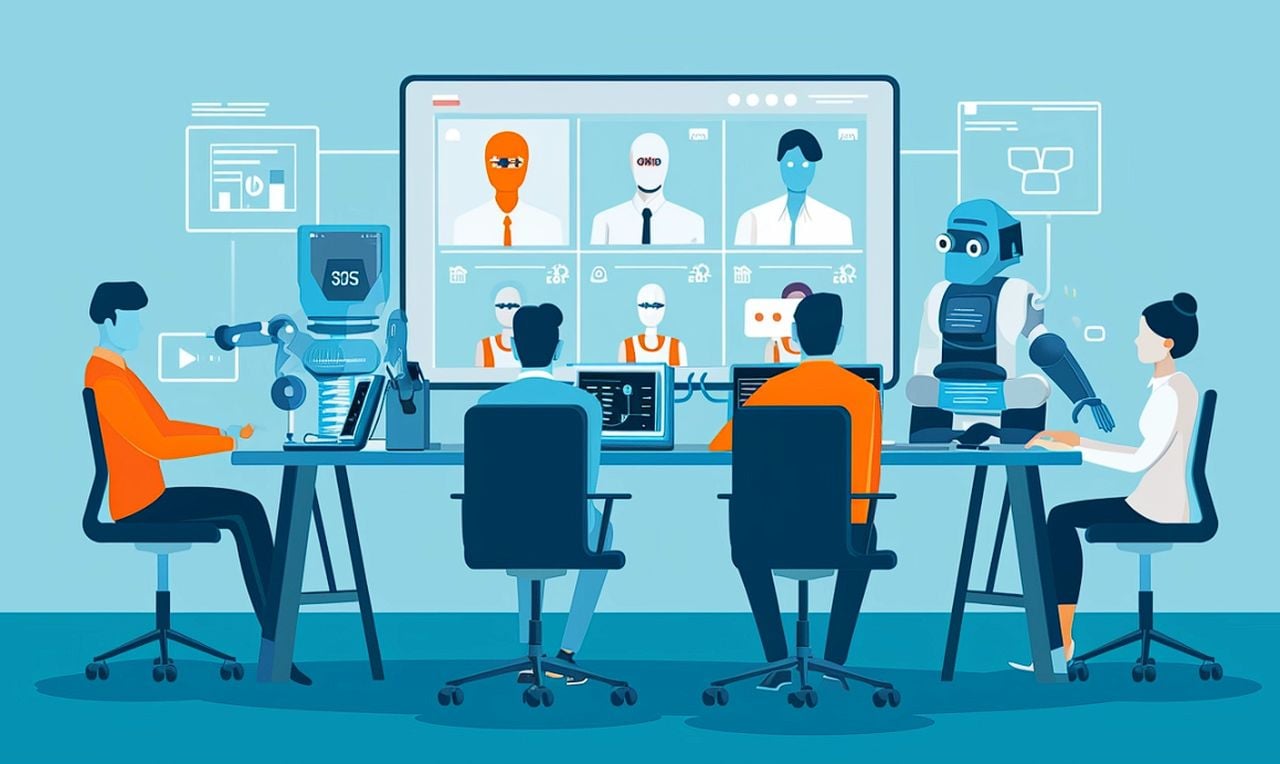
OpenAI is reportedly developing a new AI agent capable of directly controlling personal computers to automate a variety of tasks. This latest AI agent represents a significant shift from traditional AI agents, which are limited by predefined tasks and functions. The new OpenAI agent is apparently being designed to learn fundamental computer interaction skills, such as clicking, scrolling, and typing, enabling it to perform tasks on any website without the need for additional tools or APIs. This approach could potentially handle a vast array of use cases and provide a more versatile and efficient means of automating personal and work-related tasks, let’s take a closer look at what we can expect from this new OpenAI AI Agent 2.0 when it arrives.
At the heart of this advancement is the agent’s ability to perform fundamental computer operations such as clicking, scrolling, and typing. Unlike traditional agents, OpenAI’s AI can navigate any website and carry out tasks without relying on specialized tools or application programming interfaces (APIs). This capability sets it apart as a universal solution for automating computer tasks.
For everyday users, the benefits of this agent are significant. It can independently manage web-based activities, including gathering data, creating alerts, and making travel arrangements, often with minimal human input. The agent’s ability to interact in a human-like manner suggests that it could eventually serve as a true personal assistant.
OpenAI AI Agent 2.0
One of the most impressive aspects of OpenAI’s agent is its adaptability. Traditional AI agents often need new tools to be developed for each different website they encounter. However, OpenAI’s agent learns and adapts to new environments, which means it can handle a wider variety of web applications without constant updates to its software. Learn more about what we can expect from the OpenAI AI Agent 2.0 with AI Jason.
Here are some other articles you may find of interest on the subject of developing and creating artificial intelligent agents for different applications :
Autonomous AI agents
The potential of this technology is particularly exciting for web scraping, a process that involves extracting data from websites. While existing initiatives like WebQL have demonstrated the advantages of automation in this area, OpenAI’s agent could simplify even the most complex tasks and workflows. This hints at a future where AI web agents are an integral part of our everyday digital tasks.
Despite the promise of this technology, there are challenges to overcome. Ensuring that the agent can complete tasks with speed, accuracy, and reliability is still a work in progress. Other projects, such as Hyper RDE’s personal assistant and Taxi AI’s Chrome extension, have explored similar concepts, but OpenAI’s agent aims to take the idea to new heights.
OpenAI’s AI agent represents a significant step forward in the field of automation technology. By giving the agent essential computer skills and eliminating the need for extra software, it offers a more adaptable and efficient approach to automating tasks. As this technology continues to develop, it is poised to transform the way we interact with our digital world, boosting productivity and reducing the time we spend on online tasks.
AI Agent Workforce
The implications of such an agent are far-reaching. In the workplace, for example, it could automate repetitive tasks, freeing up employees to focus on more creative and strategic work. For individuals, it could manage personal schedules, sort emails, and even help with online shopping, making everyday life a little easier.
Moreover, the agent’s ability to learn and adapt means that it could become more personalized over time. It could learn a user’s preferences and habits, tailoring its actions to provide a more customized experience. This level of personalization could redefine the relationship between humans and computers, making our interactions with digital devices more intuitive and natural.
As we look to the future, the role of AI in personal computing is only set to grow. OpenAI’s agent is just the beginning of what could be a new wave of intelligent technology that works seamlessly alongside us. It’s an exciting time for both developers and users, as we stand on the cusp of a new era in personal computing.
Possible features AI Agent 2.0 may include :
- Direct Personal Computer Device Control: The agent might have the capability to directly control personal computing devices for task automation.
- Web-based Task Handling: It could potentially automate web-based tasks such as data gathering, alert creation, and ticket booking without requiring detailed oversight.
- Complex Task Management: The agent may be designed to manage more intricate personal and professional tasks, offering a wider scope of automation beyond simple tasks.
- Generic Interaction with Websites: Unlike traditional agents, this new agent could learn basic computing operations (like mouse clicks, scrolling, typing) to interact with any website, eliminating the need for website-specific development.
- Versatile Use Case Adaptability: It might handle a broad spectrum of tasks without the need for direct API integrations, particularly for websites that lack dedicated APIs.
- Simulation of Human Web Interactions: The agent may simulate human-like interactions with computer devices, potentially making it useful for a variety of everyday tasks.
- Adaptive Learning Capability: Instead of functioning based on predefined scripts for specific tasks, the agent might adapt and learn how to perform tasks on new websites.
- Enhanced Performance: Demonstrations could suggest improved speed and accuracy in task performance compared to earlier agents, indicating advancements in the technology’s effectiveness.
- Advanced Web Scraping and Data Operations: The agent might be capable of scripting through websites, manipulating data in applications like Google Sheets, and performing complex actions such as data formatting and automated communications.
- Utilization of Open Source Projects: Features could include the use of open-source projects like WebQL for building versatile agents capable of accurately interacting with diverse web interfaces.
While there is excitement around this second-generation AI agents from OpenAI, it’s important to consider the ethical and privacy implications of AI agents. As they become more integrated into our lives, ensuring that they operate with respect for user privacy and data security will be crucial. Developers and regulators will need to work together to establish guidelines that protect users while fostering innovation.
In the end, OpenAI’s AI agent is not just about automating tasks; it’s about enhancing the human experience with technology. It’s about creating tools that understand us and help us navigate the digital world more effortlessly. As this technology matures, it will undoubtedly become a cornerstone of our digital lives, redefining what it means to interact with our personal computers.
Filed Under: Guides, Top News
Latest timeswonderful Deals
Disclosure: Some of our articles include affiliate links. If you buy something through one of these links, timeswonderful may earn an affiliate commission. Learn about our Disclosure Policy.

